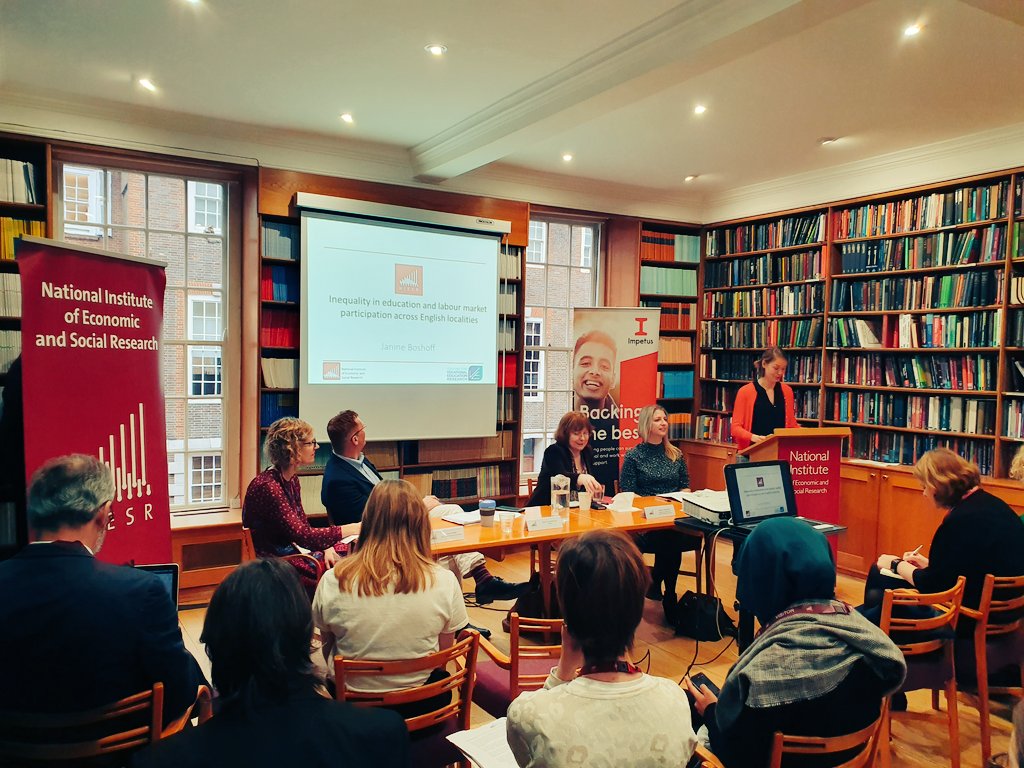Geography determines destiny of NEET young people in England

Young people’s work opportunities are significantly unequal in different parts of the country, according to new research by the National Institute of Economic and Social Research (NIESR) and Impetus.
More than 790,000 16-24 year olds, or 11.5 per cent of that age group, were not in education, employment of training (NEET) in 2019, of whom 60 per cent were not looking for work. Analysis by economists and social scientists at NIESR and the Centre for Vocational Education Research (CVER), found an extraordinary variation of NEET rates in English local authority areas.
In the urban areas in the south, gaps between groups can be attributed more to prior level of education than by their socio-economic status. In northern cities, gaps between students from different socio-economic backgrounds are much more prominent.
While there are higher rates of NEETs in urban than rural areas, this conceals more complex patterns:
- NEET rates of more than 20 per cent in urban areas such as Middlesbrough, Manchester, Nottingham, Kingston upon Hull, Islington and Hartlepool
- Most of the urban areas, including London and the South East, have relatively higher NEET rates, between 15% and 20%
- More rural areas tend to have slightly lower NEET rates, closer to 10%, with some exceptions (Reading, Kingston)
- The lowest NEET rates of less than 10% were found in York and some of the areas south-west of London (Windsor and Maidenhead, West Berkshire, Wokingham, Bracknell Forest), but also in Rutland.
NIESR’s researchers said that government interventions should target support for young people in specific areas with high levels of NEET young people, as well as greater efforts to ensure fewer individuals leave school with very low of educational achievement. Reducing the number of low attainers is likely to create the most substantive reduction of NEETs in local areas.
The findings will be discussed at a workshop today (23 Jan) hosted by NIESR which will look at potential policy solutions to help disadvantaged young people have the same chance to succeed in education and employment as their better-off peers.
This morning we’re hosting an event with @NIESRorg discussing their new research on NEET rates and how we can tackle youth unemployment with an expert panel including Impetus Director of Policy @SamanthaWindett pic.twitter.com/JdcCVRilT3
— Impetus (@ImpetusPEF) January 23, 2020
Dr Stefan Speckesser, Associate Research Director for Education and Labour at NIESR, said:
“Improving education opportunities across an individual lifetime remains the key policy to reduce NEET rates. However, as shown in our research, in some local areas – both in the North and the South – family disadvantage is equally important for successful transitions of young people to education and the labour market. In these local areas, helping poor families with targeted support will be important to make improvements.”
Andy Ratcliffe, CEO of Impetus, said:
“Since the election there’s been a lot of talk of north versus south. We have too many NEET young people, but to tackle this problem simplistic north versus south explanations only take us so far. This paper has exposed important local variations for the first time – now we must act on this.”











Responses